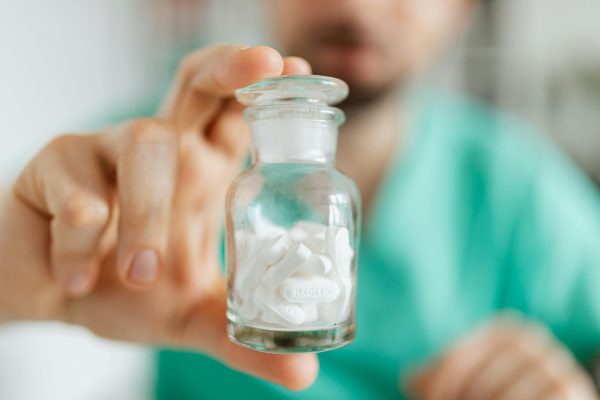Testosterone, often associated primarily with male characteristics and reproductive functions, plays a critical role in overall health, including heart health. Understanding the intricate relationship between testosterone levels and cardiovascular health can provide insights into reducing the risk of cardiovascular disease (CVD). In this comprehensive article, we delve into the ways testosterone influences heart health and how managing testosterone levels can contribute to a healthier heart.
- Understanding Testosterone
- Testosterone and Cardiovascular Health
- Balancing Testosterone Levels for Optimal Heart Health
- Conclusion
- Sources and Studies
- FAQs: Testosterone and Heart Health
- Question: How does low testosterone affect cardiovascular health?
- Question: Can testosterone replacement therapy (TRT) improve heart health?
- Question: What are the risks associated with testosterone replacement therapy?
- Question: Are there natural ways to boost testosterone levels and improve heart health?
- Question: How does inflammation caused by low testosterone impact heart health?
- Question: Can improving testosterone levels through TRT reduce the risk of cardiovascular disease?
- Question: What lifestyle changes can naturally boost testosterone levels and benefit heart health?
Understanding Testosterone
Testosterone is a hormone predominantly produced in the testes in men and in smaller amounts in the ovaries in women. It is crucial for developing male physical characteristics, muscle mass, and bone density. However, its influence extends far beyond these functions, affecting various bodily systems, including the cardiovascular system.
The Role of Testosterone in the Body
Testosterone plays several vital roles in the body:
- Muscle Mass and Strength: It helps in building and maintaining muscle mass, which is essential for overall strength and metabolism.
- Bone Density: Adequate levels of testosterone are necessary for maintaining bone density, reducing the risk of fractures and osteoporosis.
- Red Blood Cell Production: Testosterone stimulates the production of red blood cells, enhancing oxygen delivery to tissues.
- Mood and Cognitive Function: It impacts mood regulation and cognitive functions, influencing overall mental health.
Testosterone and Cardiovascular Health
The relationship between testosterone and cardiovascular health is complex and multifaceted. Several studies have explored how testosterone levels impact heart health, with varying results.
Testosterone Deficiency and Cardiovascular Risk
Low testosterone levels, also known as hypogonadism, have been linked to an increased risk of cardiovascular disease. Some key points include:
- Increased Inflammation: Low testosterone levels can lead to higher levels of inflammation in the body, a significant risk factor for cardiovascular disease.
- Adverse Lipid Profile: Hypogonadism is associated with unfavorable changes in lipid profiles, including increased levels of LDL (bad cholesterol) and decreased levels of HDL (good cholesterol).
- Insulin Resistance and Diabetes: Low testosterone levels can contribute to insulin resistance, a precursor to type 2 diabetes, which is a known risk factor for cardiovascular disease.
- Endothelial Dysfunction: The endothelium is the inner lining of blood vessels. Testosterone deficiency can impair endothelial function, leading to vascular issues and increased risk of atherosclerosis.
Testosterone Replacement Therapy (TRT) and Heart Health
Testosterone Replacement Therapy (TRT) is often prescribed to men with low testosterone levels. However, its impact on heart health remains a topic of debate among researchers and healthcare providers.
Potential Benefits of TRT
- Improved Lipid Profiles: Some studies suggest that TRT can improve lipid profiles, reducing LDL cholesterol and increasing HDL cholesterol levels.
- Reduced Inflammation: TRT may lower levels of inflammatory markers, contributing to improved cardiovascular health.
- Enhanced Insulin Sensitivity: By improving insulin sensitivity, TRT can reduce the risk of developing type 2 diabetes and related cardiovascular complications.
- Better Endothelial Function: TRT has been shown to improve endothelial function, promoting better vascular health.
Risks Associated with TRT
- Cardiovascular Events: Some studies have reported an increased risk of cardiovascular events, such as heart attacks and strokes, in men undergoing TRT, particularly in those with pre-existing heart conditions.
- Polycythemia: TRT can lead to an overproduction of red blood cells (polycythemia), which can increase the risk of blood clots and cardiovascular events.
- Prostate Health: There is a concern that TRT could exacerbate prostate issues, including benign prostatic hyperplasia (BPH) and prostate cancer, which could indirectly impact cardiovascular health.
Beyond Masculinity: Exploring the Diverse Functions of Testosterone
Balancing Testosterone Levels for Optimal Heart Health
Maintaining optimal testosterone levels is crucial for heart health. Here are some strategies to naturally balance testosterone levels and reduce cardiovascular risk:
Healthy Lifestyle Choices
- Regular Exercise: Engaging in regular physical activity, including both aerobic and resistance training, can naturally boost testosterone levels and improve cardiovascular health.
- Balanced Diet: Consuming a diet rich in healthy fats, lean proteins, and whole grains supports overall hormonal balance and heart health. Foods such as fish, nuts, seeds, and vegetables are particularly beneficial.
- Weight Management: Maintaining a healthy weight is essential for optimal testosterone levels and reducing cardiovascular risk. Obesity is linked to lower testosterone levels and increased CVD risk.
- Adequate Sleep: Quality sleep is crucial for hormonal regulation. Aim for 7-8 hours of uninterrupted sleep per night to support testosterone production and overall health.
Medical Interventions
- TRT under Medical Supervision: If TRT is deemed necessary, it should be closely monitored by a healthcare provider to balance benefits and risks. Regular check-ups and blood tests are essential to ensure safe and effective treatment.
- Management of Underlying Conditions: Addressing conditions such as obesity, diabetes, and hypertension can help improve testosterone levels and reduce cardiovascular risk.
Unlocking Vitality: Understanding Testosterone Replacement Therapy (TRT)
Stress Management
Chronic stress can negatively impact testosterone levels and cardiovascular health. Incorporating stress management techniques such as meditation, yoga, and mindfulness can promote hormonal balance and overall well-being.
Testosterone and Stress Management: Coping Strategies for Modern Life
Conclusion
The relationship between testosterone and heart health is intricate and significant. While low testosterone levels can increase the risk of cardiovascular disease, careful management of testosterone levels through lifestyle choices and medical interventions can enhance heart health and reduce cardiovascular risk. By understanding and addressing the factors that influence testosterone levels, individuals can take proactive steps towards maintaining a healthy heart.
Sources and Studies
Understanding the complex relationship between testosterone and heart health is supported by extensive research. Here are some key studies and sources that provide valuable insights:
Testosterone Deficiency and Cardiovascular Risk
- Increased Inflammation
- Journal of Endocrine Society: “Low Testosterone Levels Are Associated with Increased Inflammatory Markers in Men with Chronic Heart Failure” Link
- Adverse Lipid Profile
- European Heart Journal: “Hypogonadism, Low Levels of Testosterone and Cardiovascular Risk” Link
- Insulin Resistance and Diabetes
- Journal of Clinical Endocrinology & Metabolism: “Low Testosterone and the Risk of Type 2 Diabetes in Men: A Prospective Population-Based Study” Link
- Endothelial Dysfunction
- European Journal of Preventive Cardiology: “Testosterone Deficiency and Endothelial Dysfunction: A Comprehensive Review” Link
- These studies provide a comprehensive understanding of how testosterone levels and TRT impact cardiovascular health, offering valuable insights for managing testosterone levels to promote heart health.
Testosterone and Metabolism: How Hormonal Balance Affects Weight Management
FAQs: Testosterone and Heart Health
Question: How does low testosterone affect cardiovascular health?
Low testosterone levels can lead to increased inflammation, adverse lipid profiles, insulin resistance, and endothelial dysfunction, all of which are risk factors for cardiovascular disease.
Question: Can testosterone replacement therapy (TRT) improve heart health?
TRT can improve lipid profiles, reduce inflammation, enhance insulin sensitivity, and improve endothelial function. However, it should be closely monitored by a healthcare provider due to potential risks.
Question: What are the risks associated with testosterone replacement therapy?
TRT can increase the risk of cardiovascular events, polycythemia, and prostate health issues. It is essential to balance the benefits and risks under medical supervision.
Question: Are there natural ways to boost testosterone levels and improve heart health?
Yes, regular exercise, a balanced diet, weight management, adequate sleep, and stress management can naturally boost testosterone levels and improve heart health.
Question: How does inflammation caused by low testosterone impact heart health?
Inflammation due to low testosterone levels can damage blood vessels, leading to atherosclerosis and increased risk of heart attacks and strokes.
Question: Can improving testosterone levels through TRT reduce the risk of cardiovascular disease?
Yes, improving testosterone levels through TRT can potentially reduce cardiovascular risks by improving factors like lipid profiles and insulin sensitivity. However, it is crucial to do so under medical supervision due to potential risks.
Question: What lifestyle changes can naturally boost testosterone levels and benefit heart health?
Engaging in regular physical activity, maintaining a balanced diet rich in nutrients, getting adequate sleep, managing stress, and avoiding excessive alcohol and smoking can naturally boost testosterone levels and improve heart health.
Testosterone and Prostate Health: Dispelling Myths and Understanding Risks
Testosterone and Longevity: Strategies for Promoting Healthspan and Lifespan





